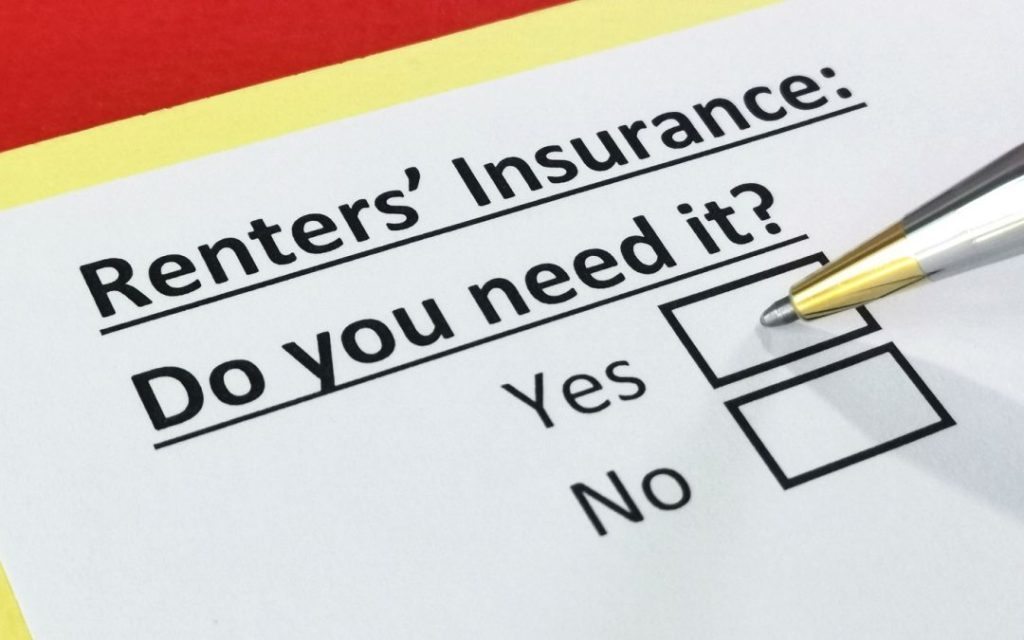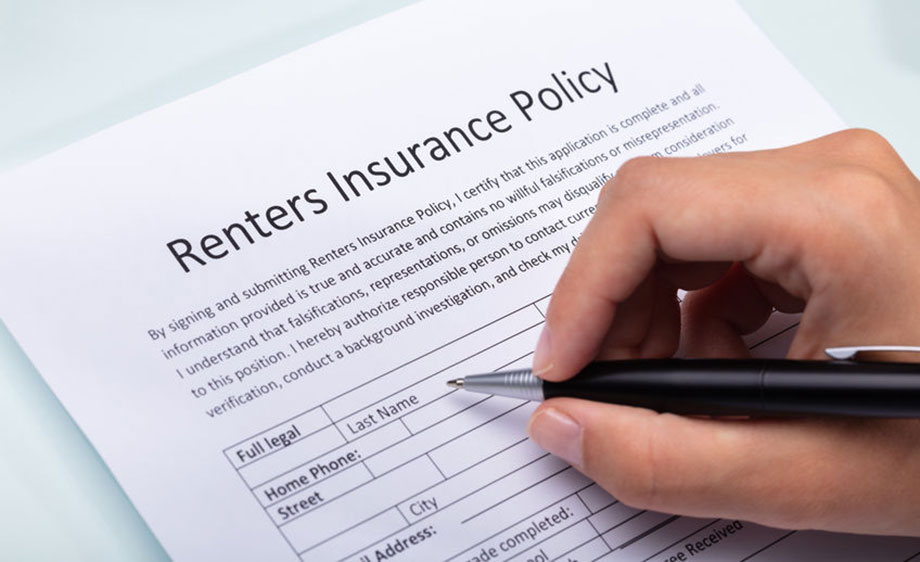Introduction
Renters’ insurance is a necessary type of insurance that plays an important role in the protection of our property, our financial welfare, and Us as people. According to the Census Bureau, the rental liability insurance policy protects not only personal items but also protects you from being sued if you injure someone or damage their property if you rent an apartment. An average renter can get it with a low monthly budget of between $15 and $30, making it a very affordable investment that takes away the risks of such things as fire, theft, vandalism, or water damage.
Moreover, tenants’ liability insurance can additionally protect our belongings outside the rented property, for instance when we travel. It also offers vital liability protection if someone is injured in our home. Additionally, the third source stresses the importance of inventorying what we own, because insurance enables us to settle the reconstruction costs of EVERYTHING WE OWN in case of incidents like electronic device loss, clothing, and furniture. Now, you might also wonder, ‘What are the Best Rated Renters’ Insurance in 2024?’ Well, you can read below and view our top picks for the highest rated renters’ insurance providers in 2024.
Key Takeaways
- Renters’ insurance provides essential coverage for our personal belongings, liability protection, and additional living expenses.
- The average policy costs $15 to $30 per month, making it an affordable way to protect our valuables.
- Renters’ insurance covers a wide range of perils, including fire, theft, vandalism, and water damage.
- The policy can provide coverage for our belongings even when they’re not in our rental unit, such as during travel.
- Documenting our possessions is crucial, as renters’ insurance can cover the cost of replacing valuable items.
Renters’ Insurance Benefits

As renters, it’s essential to protect our financial security and safeguard our personal belongings. Renters’ insurance benefits provide the essential coverage we need to mitigate the risks associated with unexpected events, such as fires, theft, or liability claims.
1. It’s Relatively Affordable
The average renter’s insurance policy is very affordable, costing around $15 to $30 a month in 2020 (the most recently available data), according to the National Association of Insurance Commissioners (NAIC). However, please keep in mind that your actual cost will depend on factors, including how much coverage you need, what type of coverage you choose, the amount of your deductible, and where you live.
2. It Covers Losses to Personal Property
A renter’s insurance policy has a lot of benefits, including protection against losses to your personal property, including clothes, jewelry, luggage, computers, furniture, and electronics. Even if you don’t own much, it can quickly add up to a lot more than you realize; and a lot more than you’d want to pay to replace everything. Plus let’s not forget the sentimental value something can have for us. Renter’s policies protect against a surprisingly long list of perils. A standard HO-4 policy designed for renters, for example, covers losses to personal property from perils including:
- Fire or lightning
- Windstorm or hail
- Explosion
- Riot or civil commotion
- Aircraft
- Vehicles
- Smoke
- Vandalism
- Theft
- Volcanic eruption
- Falling object
- Weight of ice, snow, or sleet
- Accidental water overflow or stream
- Sudden and accidental tearing apart, cracking, burning, or bulging of certain household systems
- Freezing
- Sudden and accidental damage from artificially generated electrical currents4
However, please keep in mind that losses resulting from floods and earthquakes are not covered by standard policies. A separate policy or rider is required for these perils. In addition, a separate rider might be needed to cover wind damage in areas prone to hurricanes.
3. Your Landlord Might Require It
Your landlord’s insurance covers the structure and the grounds, but not your belongings. A growing number of landlords require tenants to purchase their own renter’s insurance policies, and they’ll expect to see proof.
Most people argue that this is tedious and unnecessary but on the other side of the coin, many people believe that it is a good step taken by most and should be adopted by all landlords as it can help both parties to be covered and to minimize the out-of-pocket cost.
If you need assistance finding or obtaining coverage, your landlord may be able to help. This could be the landlord’s idea or an “order” from the landlord’s insurance company. The idea is that if the tenants are covered, some responsibility can be shifted away from the landlord.
4. It Provides Liability Coverage
Liability coverage is also included in standard renter’s insurance policies. This protects if someone is injured while in your home or if you (or another covered person) accidentally injure someone. It pays any court judgments and legal expenses up to the policy limit. Most policies provide at least $100,000 of liability coverage and a smaller amount for medical-payments coverage, you can also request (and pay for) higher coverage limits if necessary.
Furthermore, please remember that most Renter’s insurance policies don’t cover losses caused by your own negligence or intentional acts. For example, if you fall asleep with a lit cigarette and cause a fire, the policy most likely will not cover the damage.
5. It Covers Your Belongings When You Travel
Renter’s insurance covers your personal belongings, whether they are in your home, car, or with you while you travel. Your possessions are covered from loss due to theft and other covered losses anywhere you travel.5 Check your policy or ask your insurance agent for details on what constitutes “other covered losses.”
6. It May Cover Additional Living Expenses
If your home becomes uninhabitable due to one of the covered perils, your renter’s insurance policy may cover “additional living expenses,” including the cost associated with living somewhere else temporarily, food, and more.6 Check your policy to find out how long it will cover additional living expenses and if it caps the amount the company will pay.

Additional Living Expenses: A Safety Net
Renters’ insurance provides more than just protection for your personal belongings. It also covers additional living expenses, for example, if your rental unit becomes uninhabitable due to a covered event, such as a fire or natural disaster. This valuable coverage can be a crucial safety net, ensuring you have the resources you need to get back on your feet after a catastrophic incident.
When your rental home is rendered unlivable, additional living expenses coverage can help pay for temporary housing, meals, and other necessary costs. This can include the price of staying in a hotel, renting a short-term apartment, or even the extra expenses associated with living in a friend or family member’s home while your unit is being repaired or rebuilt.
Many people overlook this but by having financial assistance during this difficult time, additional living expenses coverage can help alleviate the stress and burden of having to find and pay for alternative accommodations on your own due to an incident that occurred which was not in your control.
Many people especially renters overlook the importance of additional living expenses coverage, but it can certainly be a game-changer when you need it most. By including this component in your renters’ insurance policy, you can have peace of mind knowing that you have a safety net in place to help you weather the storm and get back into your rental home as quickly as possible.
Understanding Your Policy: What’s Covered and What’s Not

The main risks when it comes to renters’ insurance, are that the things covered, the peculiarities and limitations of your policy must be considered. This information is going to make you more knowledgeable and enable you to get the insurance you need to safeguard yourself and your assets.
Perils Typically Included
A standard renters’ insurance policy typically covers a wide range of perils, such as fire, theft, vandalism, and water damage. These are the most common types of events that can cause harm to your personal property, and your policy will protect against them. However, it’s important to note that some events, such as floods and earthquakes, may require separate coverage, so it’s essential to review the specifics of your policy.
Exclusions and Limitations
While renters’ insurance offers comprehensive coverage, it’s crucial to be aware of the exclusions and limitations that may apply. Your policy may exclude certain types of damage, such as that caused by pests or wear and tear, or it may have coverage limits for specific items or categories of belongings. Understanding these exclusions and limitations can help you make informed decisions about your coverage and ensure that you have the protection you need.
By taking the time to review the details of your renters’ insurance policy, you can be confident that you are adequately protected against the perils that could threaten your personal property and financial security. This knowledge can provide you with peace of mind and the assurance that you are prepared for the unexpected.
Landlord Requirements
Landlord Recommendations
Mandatory renters’ insurance policy
Minimum coverage limits for liability and personal property
The landlord named as an additional insured or interested party
Strongly encouraged renters’ insurance
Guidance on suitable coverage options
Assistance in finding affordable policies
By understanding and adhering to their landlord’s requirements and recommendations regarding renters’ insurance, tenants can ensure they have the necessary protection in place to safeguard their personal belongings and mitigate potential liability risks. This collaborative approach between landlords and renters can foster a more secure and harmonious rental experience for all.
Conclusion
Throughout this article, the information has been put together to bring to light numerous insurance benefits such as financial security, personal property protection, liability coverage, and additional living expenses protection. Renters’ insurance is a budget-friendly and essentially fundamental investment for any renter, whether home or apartment, as it is capable of decreasing the risks that are linked with unexpected events and adding more peace of mind. By being familiar with the policy options and prerequisites, we can rest assured that we have the security that is required to protect our properties as well as our financial state.
It is understood that renters’ insurance is the number one investment for those who want maximum financial security and the safety of their belongings along the way.
Getting a wide-ranging plan gives us the guarantee that we are ready for any uncertainty and can relax, have a good time, and enjoy our rented homes without the fright of potential losses which is always hanging over us. Tough time? No problem, with the help of the right coverage, we will not only manage through but pay our bills as well in case of any disruption.
To sum up, the strengths of renters’ insurance are out of the question. When we take the time to learn our choices and guarantee that we have the right insurance, we can take our first but very important step toward securing our financial future and protecting the things we cherish.
No wonder, safeguarding the personal belongings that we have, making ourselves immune from the liability we might face, or ensuring that we have the financial resources that we can use to recover from a catastrophic event rents insurance is an investment that is highly recommended to be made and to recommend it to as many friends and family as possible.
FAQ
What are the key benefits of renters’ insurance?
Renters’ insurance provides essential coverage for your personal belongings, liability protection, and additional living expenses if you’re forced to relocate temporarily. It can also give you peace of mind, knowing that your valuable possessions are safeguarded.
How much does renters’ insurance typically cost?
The average renters’ insurance policy costs per month, making it an affordable coverage option to protect your financial well-being.
What types of personal property does renters’ insurance cover?
Renters’ insurance can protect a wide range of items, including electronics, household appliances, furniture, home decor, and clothing, ensuring that you can replace these valuable possessions in the event of a covered loss.
What kind of liability coverage does renters’ insurance provide?
Renters’ insurance offers liability coverage, which can protect you if someone is injured in your rental unit or if you accidentally cause damage to someone else’s property. This coverage can pay for medical expenses and legal fees.
Does renters’ insurance cover additional living expenses?
Yes, renters’ insurance may provide coverage for additional living expenses if your rental unit becomes uninhabitable due to a covered event, such as a fire or natural disaster. This can include the cost of temporary housing, meals, and other necessary expenses.
Does renters’ insurance cover my belongings even when I’m traveling?
Yes, renters’ insurance can provide worldwide coverage for your personal belongings, even when they are not in your rental unit, such as when you are traveling. This can include protection against theft or damage to your items while you are away from home.
What perils are typically covered by a renters’ insurance policy?
A standard renters’ insurance policy typically covers perils such as fire, theft, vandalism, and water damage. However, some events, such as floods and earthquakes, may require separate coverage.
Do landlords require renters’ insurance?
Yes, a growing number of landlords are requiring their tenants to purchase renters’ insurance policies, and they may even assist in finding coverage. This can help shift some responsibility away from the landlord and provide an additional layer of protection for all parties.
Disclaimer
All the information on this website is published in good faith and for general information purposes only. Kastamonubugun does not make any warranties about the completeness, reliability, and accuracy of this information. Any action you take upon the information you find on this website (kastamonubugun.com), is strictly at your own risk. Will not be liable for any losses and/or damages in connection with the use of our website.
From our website, you can visit other websites by following hyperlinks to such external sites. While we strive to provide only quality links to useful and ethical websites, we have no control over the content and nature of these sites. These links to other websites do not imply a recommendation for all the content found on these sites. Site owners and content may change without notice and may occur before we have the opportunity to remove a link that may have gone ‘bad’.
Read our other Educational and insurance articles below:-
Tulane University: A Prestigious Institution in the Heart of New Orleans
Best Scholarship Opportunities for International Students in the USA
Best Ways To Achieve Outstanding Educational Performance in 2024
Best Online Insurance Companies in the US and UK
